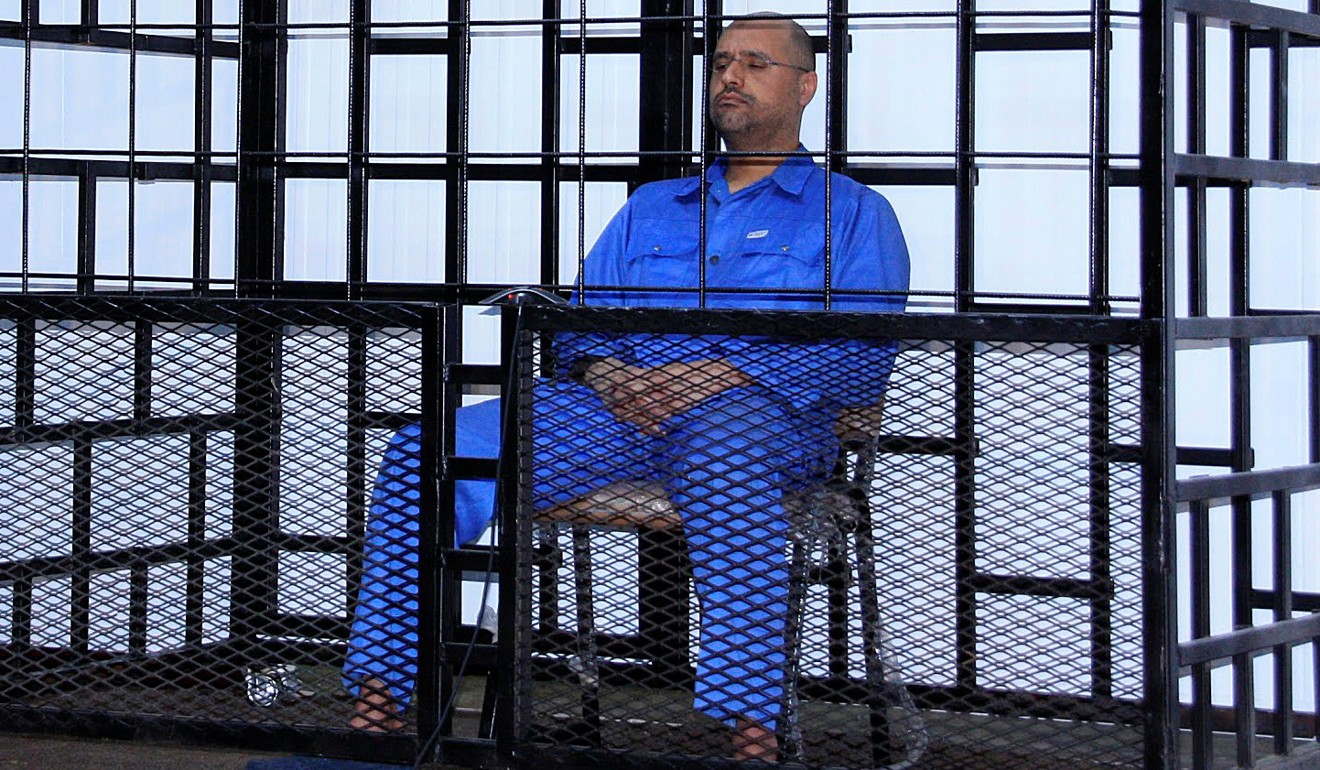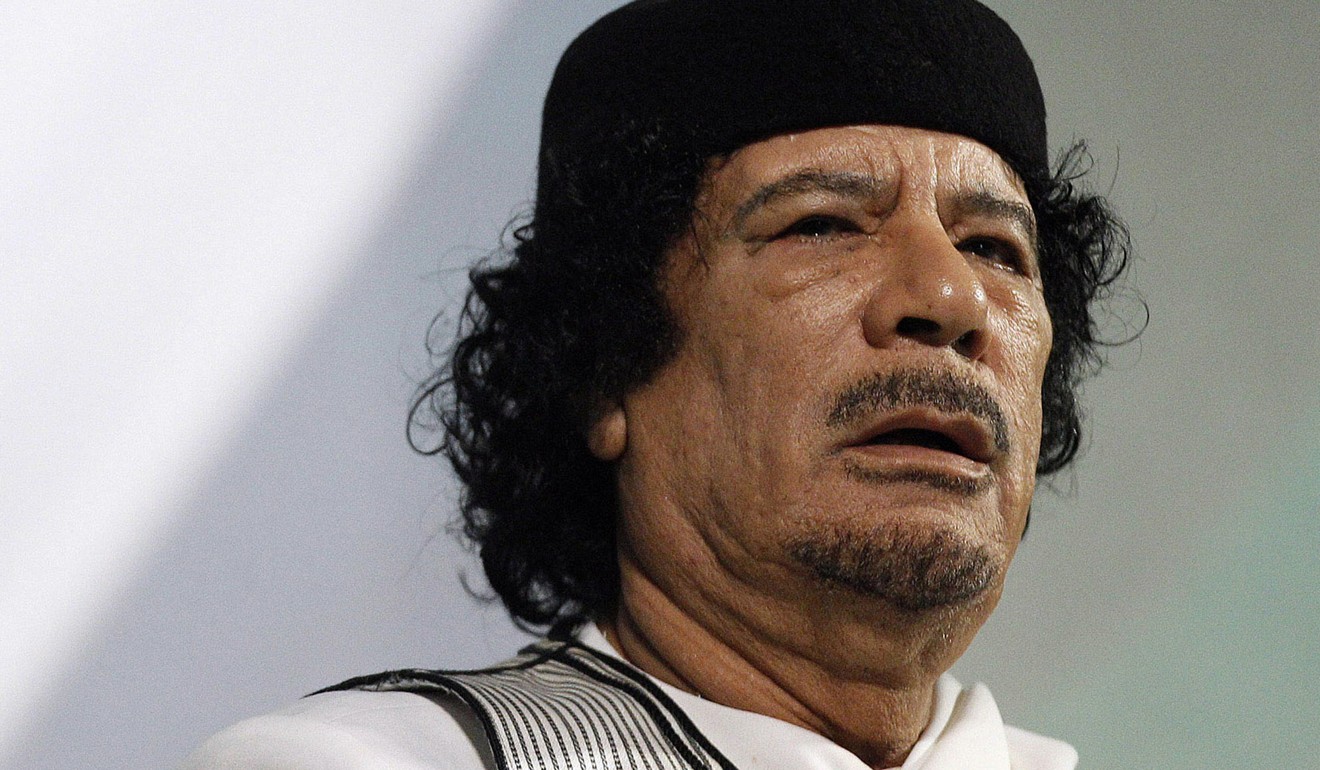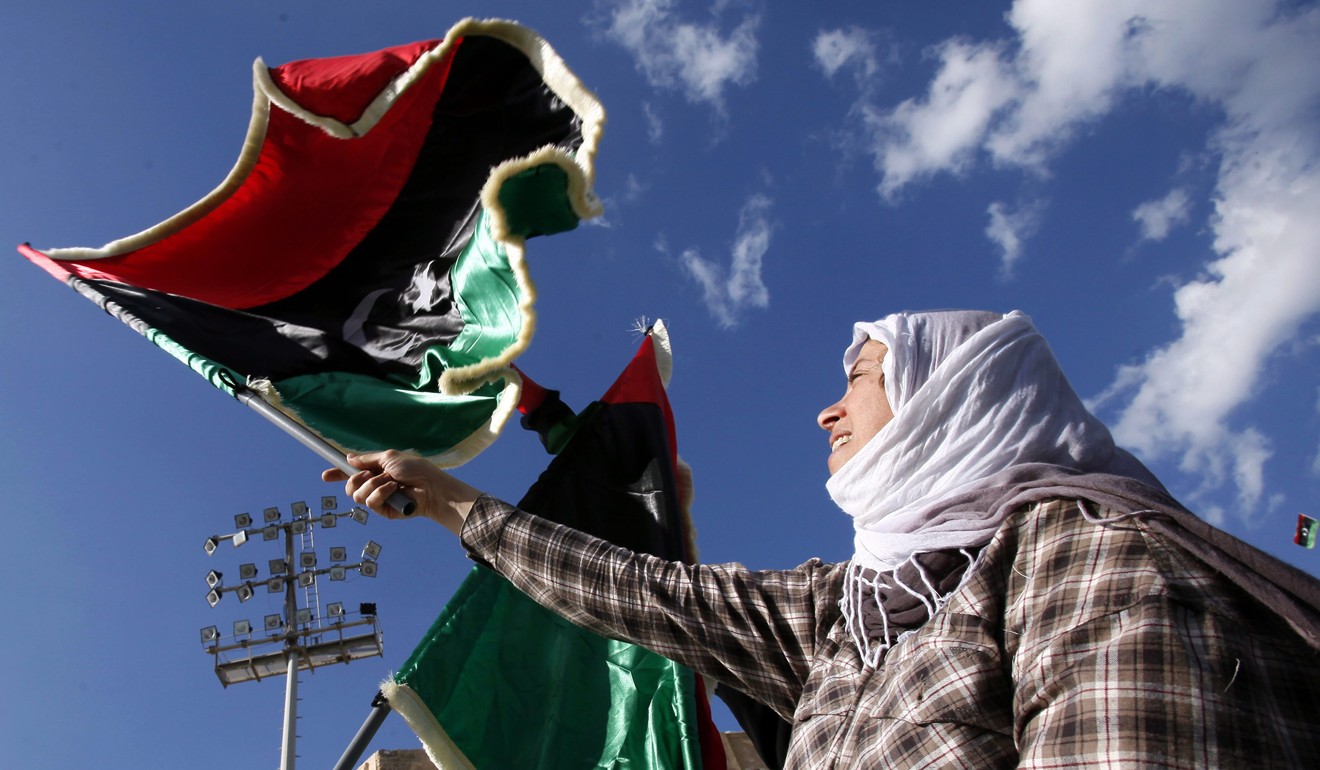
‘He will remain in Libya to defend its territory or die a martyr’: after years in jail, Gaddafi’s son Saif pledges return to politics
He was once the heir apparent of his father’s regime, a London School of Economics graduate touted as a moderniser who mixed with British high society
Saif al-Islam Gaddafi, the son of the former Libyan dictator, is seeking to make a comeback after years in detention, and claims to be leading a military campaign against terrorist groups around Tripoli.
Gaddafi was freed in June after six years as the prisoner of a militia in the town of Zintan, following the Nato-supported uprising in 2011 that led to the killing of his father, Muammar Gaddafi.
Saif Gaddafi was once the heir apparent of the Libyan regime, a London School of Economics graduate touted as a moderniser who mixed with British high society. Now, he stands accused of ordering the killing of protesters as the Gaddafis fought desperately to hold on to power.
But in recent weeks he has told a US contact that he is gathering a force that had taken control of the coastal town of Sabratha – and claimed he would fight his way to Tripoli.
“Saif al-Islam is inside Libya and is committed to his word, which he gave to all Libyans in 2011, when he said that he will remain in Libya to defend its territory or die a martyr for it,” a spokesman for Gaddafi said in a statement that was supplied to the US contact, who had extensive dealings with him before the fall of his family’s regime.


“The forces who fought in Sabratha against Isis [Islamic State], the gangs of illegal immigrants and the oil-smuggling mafias were mainly members of the tribes who support Saif al-Islam, and those who were part of the former Libyan army, also loyal to Saif Gaddafi.”
But it is unclear to what extent Gaddafi is claiming credit for military operations carried out by others. Much of the recent fighting has been between tribal militias vying for control of smuggling routes. Observers said they doubted the dictator’s son would be pose a serious threat to the capital, but he could emerge as a political force if he is allowed to stand for elections next year despite his 2011 indictment from the International Criminal Court (ICC) for alleged crimes against humanity.
“Developments on the ground have not been in his favour,” said Mattia Toaldo, a senior policy fellow at the European Council on Foreign Relations. “He can dream, but he can’t get anywhere.”
An official involved in election preparations said the ICC indictment against Gaddafi would not necessarily stop him from standing, or winning.
You can see he has popularity on the ground, particularly in the south
“We don’t control who stands in the election. That is up to the Libyans,” the official said, pointing to the precedent of Uhuru Kenyatta’s 2013 presidential election win in Kenya despite ICC charges.
“You can see he has popularity on the ground, particularly in the south.”
Gaddafi is seeking to benefit from the chronic sense of uncertainty and insecurity since his father’s fall. Libya has two rival parliaments and many competing fiefdoms run by warlords and militias. A tenuous UN agreement designed to hold the nation together is wearing thin and its critics claim it will expire on 17 December, the anniversary of its signing.
If there is no agreement between the factions to amend and extend the agreement, there are fears that the current most powerful military figure, General Khalifa Hifter, head of the Libyan National Army (LNA) – which holds sway in the east – will seek to capture Tripoli and oust the UN-backed prime minister Fayez al-Sarraj and his government.

Hiftar has backing from Egypt, Russia and the United Arab Emirates and is reported to have held talks in Paris last month with militia leaders based in Tripoli, on whom Sarraj depends for his security, seeking to persuade them to stand down or defect.
Meanwhile, the prime minister met Donald Trump on Friday, but his requests for a more active US role, including a guarantee of personal security for himself and his government, were rebuffed.
The 2015 UN-brokered agreement has failed to bind Libya’s divisions. It created a presidency council in Tripoli that was supposed to form a unity government, and the House of Representatives in eastern Libya was supposed to approve the unity government, but it has yet to do so.
The UN special envoy, Ghassan Salamé, has sought to keep the peace process alive and make the transitional government more effective with a national conference planned for early in 2018, then hopefully elections. Salamé has said that any election law adopted by Libya should be “open for all” including loyalists from the old regime and Saif Gaddafi.

